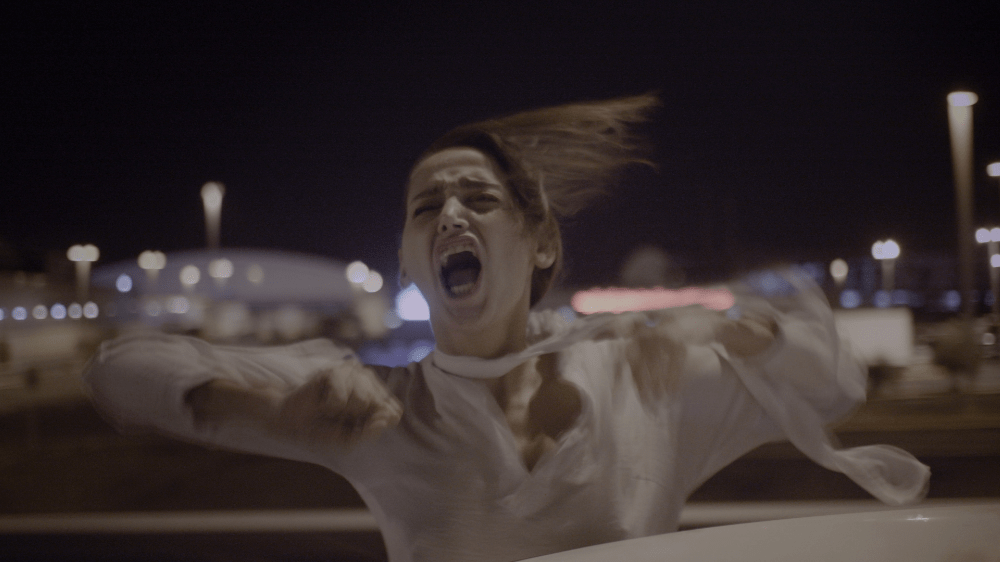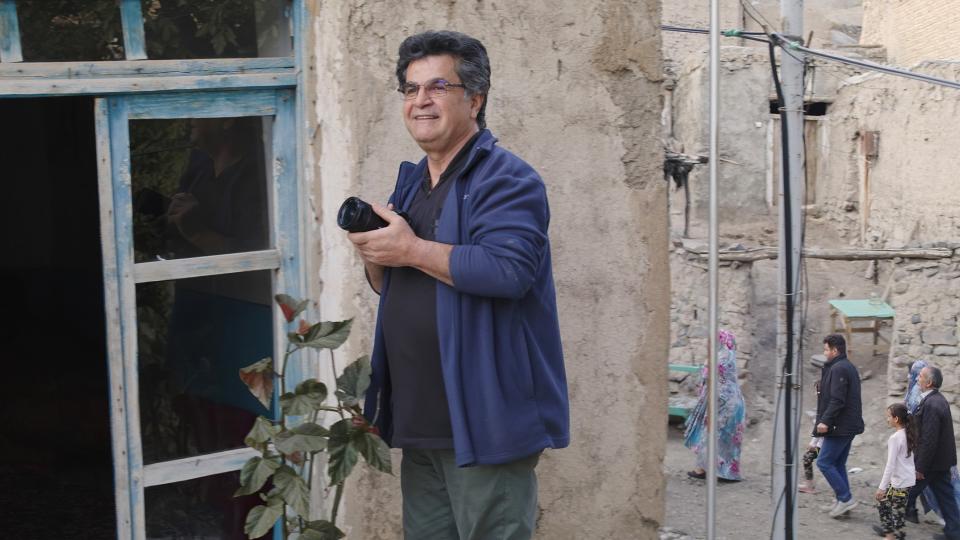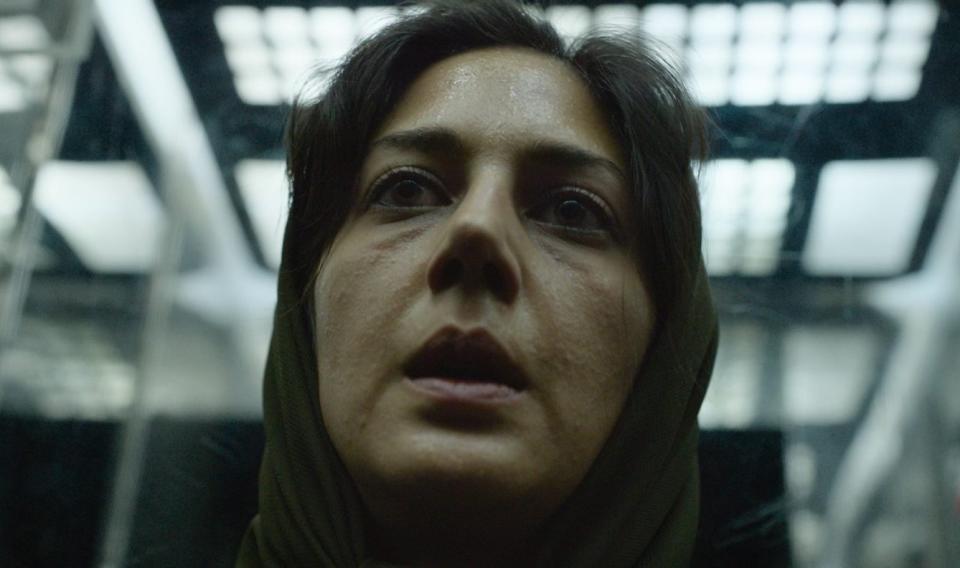‘Barbie’ Got Banned and Hollywood Is Still on Strike, but We Really Need to Talk About Iran

- Oops!Something went wrong.Please try again later.
- Oops!Something went wrong.Please try again later.
Kohn’s Corner is a weekly column about the challenges and opportunities of sustaining American film culture.
Cinema is a global industry, but Hollywood struggles to see beyond its own reflection. This past week, much was made about the international impact of “Barbie,” a mass-market takedown of the patriarchy that somehow has been able to screen in Saudi Arabia but not in Kuwait, and got banned in Algeria for “homosexuality and other Western deviances” a month after its release, presumably because censors decided to see “Oppenheimer” first.
More from IndieWire
Pixar's 'Elemental' and Sony's 'No Hard Feelings' Debut on VOD Charts but Fail to Dominate
'Freelance' Trailer: John Cena Saves Alison Brie After an Interview Gone Wrong
Yet far less attention in the West has been paid to Iran, which did not screen “Barbie” or any other American movie this month, and shows no sign of doing that anytime soon. The Middle Eastern country banned the theatrical release of most foreign films years ago, which means that most Iranian audiences for Hollywood blockbusters come from the industry’s greatest foe: piracy sites.
Meanwhile, Iran’s own film community faces hardships of its own, as countless major filmmakers have been jailed or otherwise prosecuted for violating the government’s oppressive terms. Earlier this year, revered dissident filmmaker Jafar Panahi and Mohammad Rasoulof finally got released from prison after months of international pressure. This past week, Iranian writer-director Saeed Roustayi and his producing partner Javad Noruzbegi were sentenced to six months of jail time in a delayed response to the screening of Roustayi’s family darma “Leila’s Brothers” at Cannes.
He has additionally been banned from making movies for five years, a sentence that hasn’t stopped many Iranian directors before. Sadly, this urgent news hasn’t elicited the same level of response from the film community. A petition calling for an appeal to Roustayi’s sentence circulated online by Wednesday and received social media pushes from the likes of Frances Ford Coppola and Martin Scorsese, but was still 5,000 signatures away from its goal two days later. It’ll probably get there, but the lack of urgency from the Western entertainment industry is a frustrating reminder of its selfish priorities.
In the midst of the Hollywood strikes, as writers and actors fight for a more equitable industry, it might seem hard to conceive of working within a system in which freedom of expression is up for debate. But Iranians have adapted to these circumstances for ages. As critic Godfrey Cheshire explains in his essential 2022 book “In the Time of Kiarostami: Writings on Iranian Cinema,” Iranian’s most celebrated auteur, Abbas Kiarostami, worked his way around the threat of censorship through the ambiguous lens of minimalist allegorical storytelling and other devices.

More recent directors have taken a more confrontational approach by going underground. Panahi has memorably flaunted his violation of the ban imposed on his work with everything from his first-person diary project “This Is Not a Film” to the Berlin-winning “Taxi,” but a new generation has taken that impulse in even more daring and dangerous directions.
As it happened, one such endeavor won the Golden Leopard at the Locarno Film Festival last week. “Critical Zone,” the mesmerizing third feature from director Ali Ahmadzadeh, follows a lonely drug dealer (Amir Pousti) across a long dark night of the soul as he cruises through Tehran delivering his goods and engaging in a series of surreal experiences. (Think of a weirder “High Maintenance” against the backdrop of a dicatorship and you’re on the right track.) Ahmadzadeh’s guerrilla style of filmmaking adds another shocking layer to the project, as he shows women without their hijabs and illegal paraphanelia that would never pass muster with Iranian censors. Ahmadzadeh didn’t even try to do that, and by the time the movie premiered in competition at Locarno, the country banned him from crossing its borders.
“At the moment we were making the film, we didn’t really care about the danger we could be in,” Ahmadzadeh told me over Zoom from Tehran this week. “I had this feeling of not having much to lose. I still do. It’s an exhausting task to make an underground film in Iran. You have no security or certainty. You just have to move forward with your own beliefs.”
That conviction stands out within the broader context of social unrest that has rippled across the country over the past year with the Woman, Life, Freedom movement, which has found thousands of Iranian women demonstrating their opposition to Iran’s oppressive anti-woman policies by tearing off their headscarves and cutting their hair. “Critical Zone” addresses the movement in personal terms with one of the most powerful cinematic moments of the year.
After the dealer gives a ride to a flight attendant he picks up at the airport, she gets hopped up on drugs as the pair flee some unnamed assailants; once it appears they’re in the clear, she sticks her head out and lets her hair fly into the wind as she unleashes one “Fuck you!” after another in a triumphant battlecry to the empty night. It’s a more ferocious epithet against the patriarchy than any single candy-colored frame of “Barbie” could hope for.
Ahmadzadeh was so affected by the scene after shooting it that he posted it to Instagram during the production. As the protests continued, it went viral. “It was a very important and symbolic cry of anger, not just for her but for many of us,” he said.
Ahmadzadeh said he admired movies like last year’s “Holy Spider,” which told the unnerving real-life story of an Iranian serial killer who targeted prostitutes but shot in Jordan to avoid cenorship. However, he has chosen a more radical path. “Through the decades in Iran, the restrictions and censorship rules have been integrated by directors even unconciously,” he said. “Our greatest directors have avoided subjects that have to do with contemporary society. Now we are gradually dealing with the heart of the crisis. The world can support us by paying more attention to this cinema, and not only mainstream Iranian cinema.”

Even as he understood the fundamental risks of his filmmaking, “we felt more and more excited and braver as we went along,” Ahmadzadeh said. “This kind of cinema is very much an individual kind of filmmaking. The crew is extremely small and each person has to be more versatile. I couldn’t afford to build sets or shoot freely.”
Despite the dreamlike mood of the movie, Ahmadzadeh often staged scenes as if he were making a documentary, recording his actors from a distance as they attempted to recite their dialogue and move around in accordance with his predetermined mise-en-scene. “This kind of filmmaking has a performative aspect ot it,” he said. “I had to have a handicam with a zoom lens then the actors would go and perform without knowing where the camera was and just give their performance in a kind a blind way. There was real tension in these scenes.”
There are some who question the logic of Ahmadzadeh’s endeavor. I spoke to one Iranian director who felt Ahmadzadeh was being too reckless for his own good; outside the country, others may similarly wonder if the risk is worth it. Ahmadzadeh had an answer to that. “We are documenting our times,” he said. “Our government wants to impose on us a different representation of our society, and it’s vital for us to go on creating our own images.”
“Critical Zone” has yet to secure U.S. distribution, and even by arthouse standards, it might be deemed too “small” for many distributors way of releasing international films. But that leads me to wonder if, say, a philanthropic entity might step up to cover the costs as a fundraiser for Iranian resistance. (For those wondering, the Iranian American Women Foundation is a good place to give.)
Above all, the circumstances surrounding a production like this provide a valuable wakeup call to the role of cinema as an international medium — one that has much more impact beyond the constraints of the Hollywood conversation.
Feedback on this weekly column is welcome: eric@indiewire.com
Best of IndieWire
Where to Watch This Week's New Movies, from 'Blue Beetle' to 'The Adults'
The 50 Best Sexy Movies of the 21st Century, from 'Spring Breakers' to 'X'
Sign up for Indiewire's Newsletter. For the latest news, follow us on Facebook, Twitter, and Instagram.

